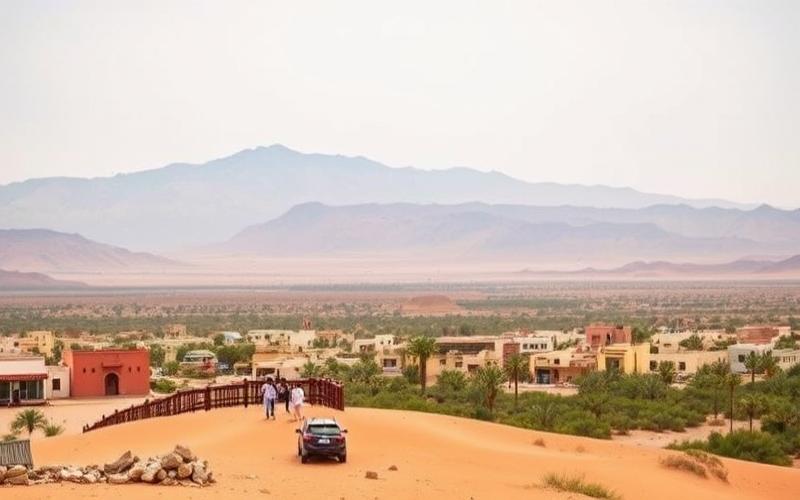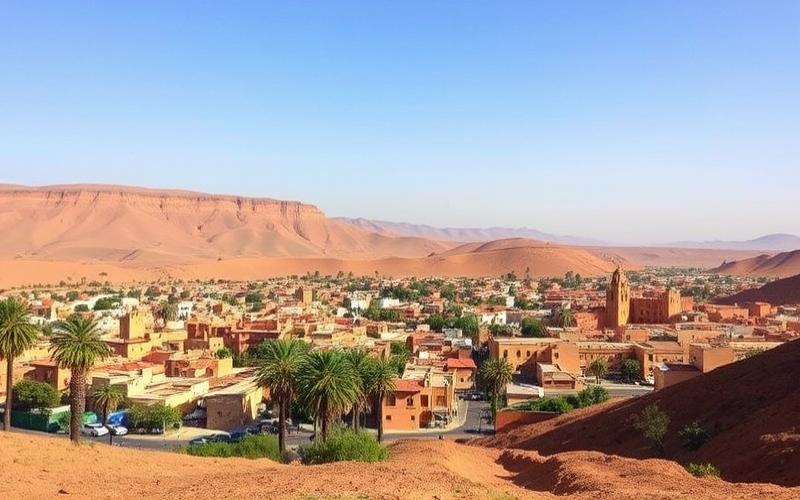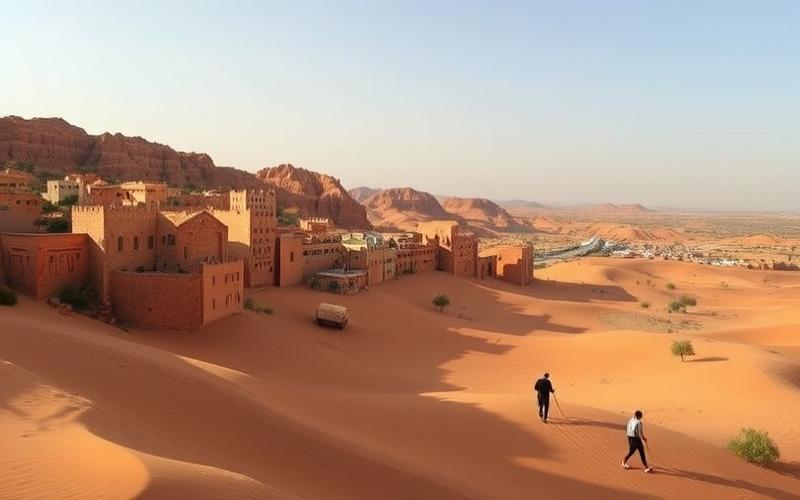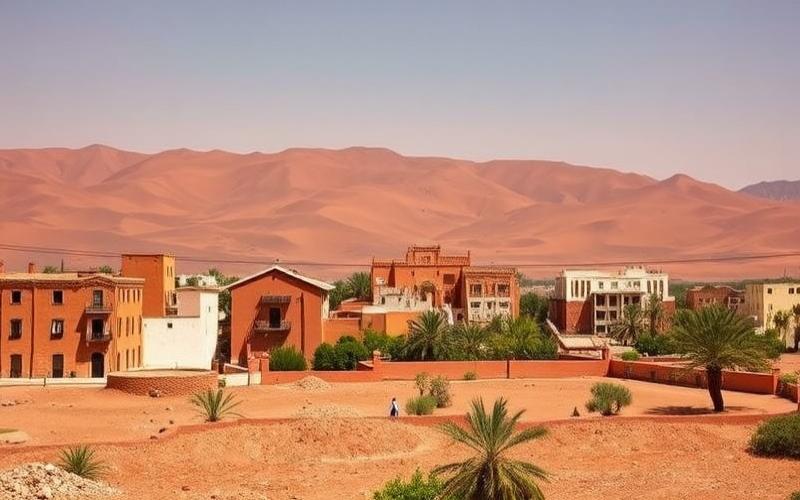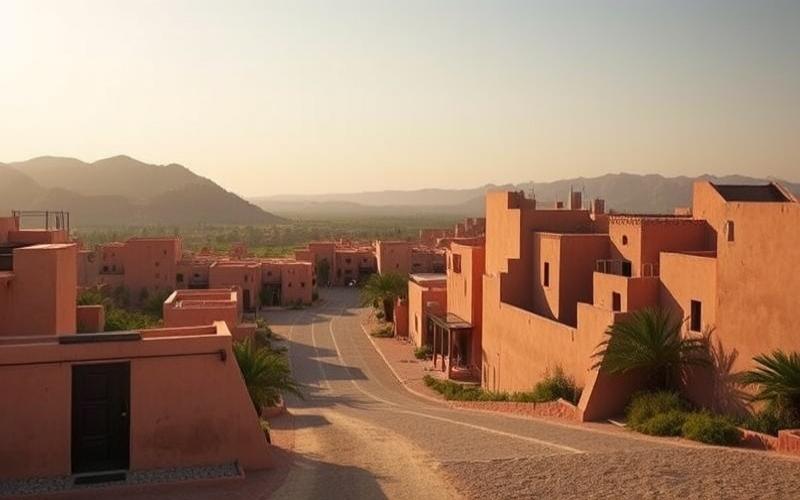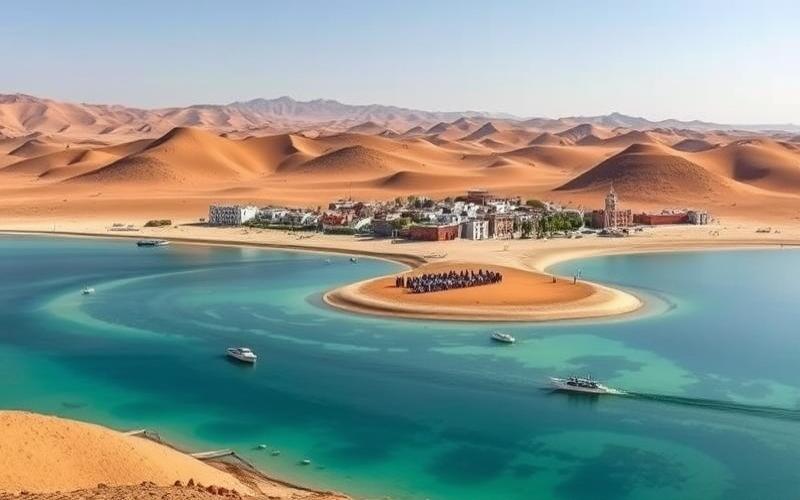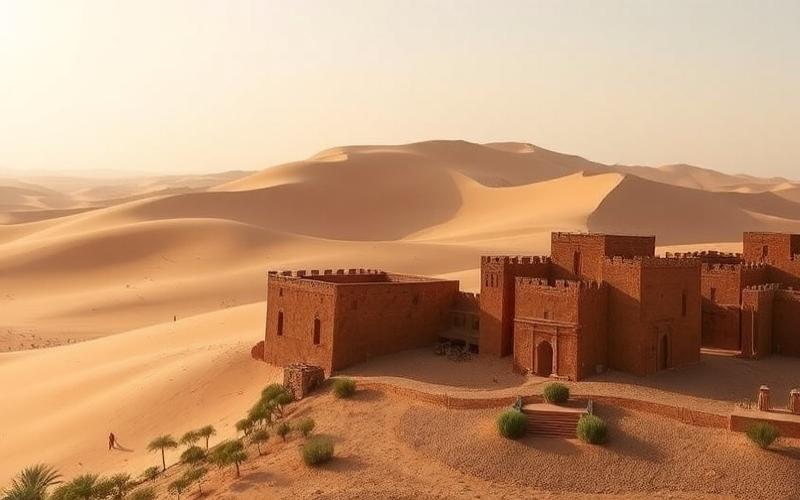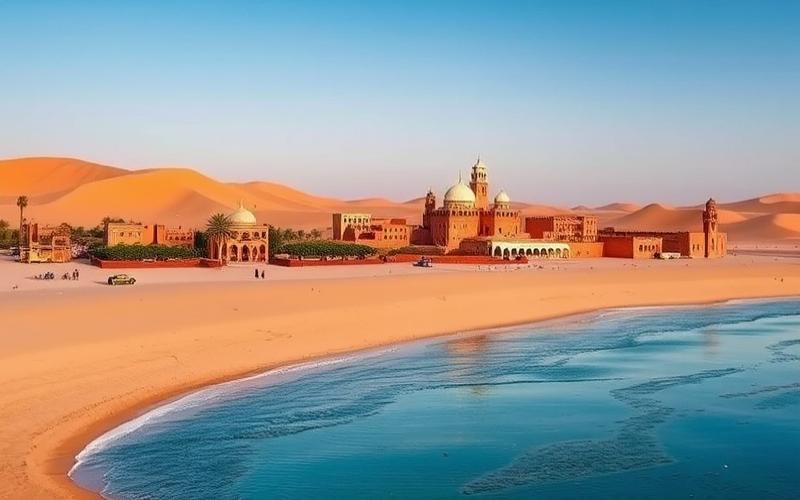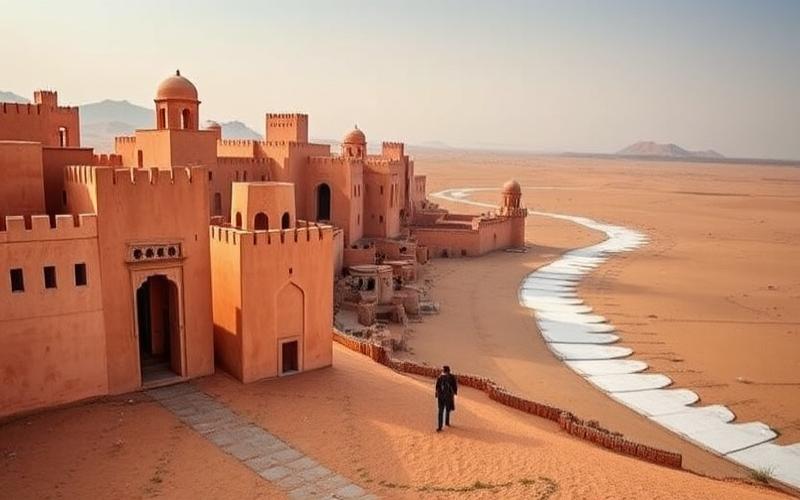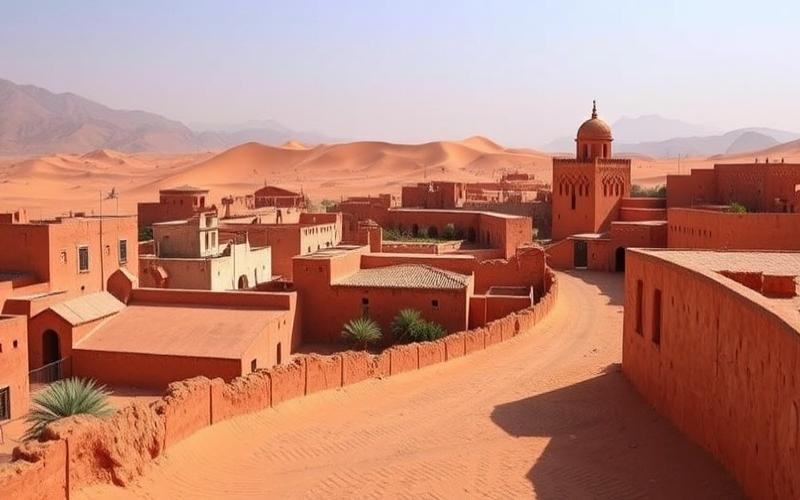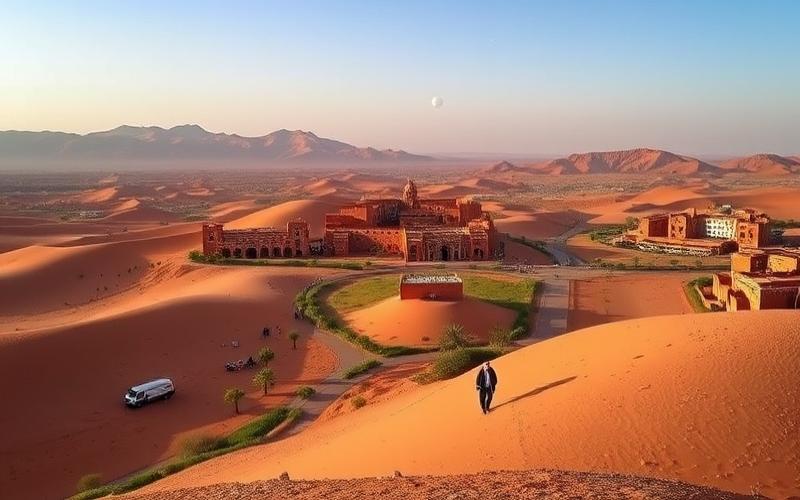
 Published on and written by Cyril Jarnias
Published on and written by Cyril Jarnias
Morocco is establishing itself as a land of opportunity for entrepreneurs, offering a dynamic economic environment and attractive growth prospects. Let’s explore in detail the factors that make the Kingdom a prime destination for investors and business creators.
Robust and Resilient Economic Growth
Morocco demonstrates an impressive economic growth trajectory, showing its ability to overcome global challenges. According to forecasts from the African Development Bank (AfDB), the Moroccan economy is expected to experience significant expansion in the coming years:
- Growth of 3.9% expected in 2025, following 2.9% in 2024
- A slight deceleration to 3.6% projected for 2026, while remaining above the global average
This positive dynamic is supported by several pillars:
Recovery of the agricultural sector: Despite climate variability in recent years, agriculture remains an essential engine of the Moroccan economy. Modernization efforts and adaptation to climate change are expected to stabilize and increase agricultural production.
Tourism boom: The tourism sector is experiencing a spectacular rebound, with optimistic forecasts for 2025. The ambitious goal of welcoming 26 million visitors by 2030 demonstrates the growth potential of this key sector.
Influx of foreign direct investment (FDI): Morocco is attracting more and more international investors, particularly in high value-added manufacturing sectors. In 2024, net FDI surged by 55.4% compared to the previous year, a trend expected to continue in 2025.
Good to know:
Moroccan economic growth is expected to exceed the global average in 2025, offering fertile ground for local and international entrepreneurs.
A Policy Framework Favorable to Entrepreneurship
The Moroccan government has implemented a series of measures and reforms aimed at stimulating entrepreneurship and attracting investment:
The Industrial Acceleration Plan: Launched in 2014 and regularly updated, this plan has enabled Morocco to integrate into global value chains, particularly in the automotive sector, which has become the leading manufacturing export.
Attractive tax incentives: Morocco offers a favorable tax regime for businesses, especially in certain strategic zones:
- Full exemption from corporate tax (IS) for the first 5 years of operation
- 50% reduction in export turnover for the following 5 years
- In the Tangier province: 50% reduction in IS, professional tax, and business license fee
- Tangier Free Zone: 100% exemption from IS for 5 years, followed by a reduced rate of 8.75% for the next 10 years
Simplification of administrative procedures: The creation of Regional Investment Centers (CRI) has centralized and facilitated procedures for entrepreneurs and investors.
Investment protection: Morocco has signed numerous bilateral and international conventions guaranteeing the protection of foreign investments and the free transfer of capital.
Good to know:
The Moroccan regulatory framework offers strong protection to foreign investors, with guarantees of non-discrimination and free transfer of capital.
Future Sectors: Where to Invest in Morocco?
Several emerging sectors offer promising opportunities for entrepreneurs in Morocco:
Renewable energy: Morocco has set the ambitious goal of producing 52% of its electricity from renewable sources by 2030. Flagship projects like the Noor Ouarzazate solar power plant pave the way for numerous opportunities in this field.
Green hydrogen: The Kingdom aims to become a major exporter of green hydrogen to Europe, creating a new high-potential sector.
Automotive and aerospace industry: These sectors are experiencing rapid growth, with the establishment of major international groups and the development of a local subcontractor ecosystem.
Agritech: Modernizing the agricultural sector involves adopting innovative technologies, offering many opportunities for startups specializing in smart and sustainable agriculture.
Digital and innovation: Morocco is betting on the development of a dynamic startup ecosystem, particularly in fintech, e-commerce, and artificial intelligence.
Good to know:
Agritech represents a major opportunity in Morocco, combining the traditional importance of the agricultural sector with technological innovations.
Although the outlook is generally positive, entrepreneurs should be aware of potential challenges:
Dependence on the agricultural sector: Despite diversification efforts, the Moroccan economy remains sensitive to climate variability that can affect agricultural production.
Regional geopolitical context: The security situation in some neighboring countries can impact the Moroccan economy, particularly tourism.
Exchange constraints: Moroccan monetary policy imposes restrictions on fund transfers abroad, which can complicate profit repatriation for foreign investors.
However, these challenges are counterbalanced by numerous opportunities:
Strategic geographic location: Morocco benefits from proximity to Europe and privileged access to African markets.
Quality infrastructure: The country has modern infrastructure, particularly in transportation and logistics, facilitating trade.
Skilled and competitive workforce: Morocco offers a pool of talent at competitive costs, especially in technical and technological sectors.
Good to know:
Morocco’s unique geographic position makes it an ideal platform for companies seeking to access European and African markets.
2030 Horizon: A Promising Future for Moroccan Entrepreneurship
Long-term prospects for entrepreneurship in Morocco are encouraging, driven by several key factors:
Digital transformation: The “Morocco Digital 2030” plan aims to accelerate the digitization of the economy, with the ambition of seeing ten “gazelles” (high-growth companies) emerge by 2026 and one or two “unicorns” by 2030.
Rise of the green economy: Morocco is positioning itself as a regional leader in renewable energy and the circular economy, opening new perspectives for eco-responsible entrepreneurs.
Regional integration: Strengthening economic ties with sub-Saharan Africa offers expansion opportunities for Moroccan companies.
Major international events: The joint organization of the 2030 World Cup with Spain and Portugal will stimulate investments in infrastructure and tourism, creating a ripple effect throughout the economy.
Industrial upgrading: Morocco aims to position itself in higher value-added segments of industry, particularly in electric vehicles and aerospace.
Good to know:
The “Morocco Digital 2030” plan aims to foster high-growth startups, offering exceptional opportunities in the technology sector.
In conclusion, Morocco offers fertile ground for bold and visionary entrepreneurs. With sustained economic growth, a favorable regulatory framework, and promising emerging sectors, the Kingdom is positioning itself as a prime destination for local and international investors. Although challenges remain, the long-term outlook is decidedly positive, making Morocco an emerging entrepreneurial hub on a regional and continental scale.
Disclaimer: The information provided on this website is for informational purposes only and does not constitute financial, legal, or professional advice. We encourage you to consult qualified experts before making any investment, real estate, or expatriation decisions. Although we strive to maintain up-to-date and accurate information, we do not guarantee the completeness, accuracy, or timeliness of the proposed content. As investment and expatriation involve risks, we disclaim any liability for potential losses or damages arising from the use of this site. Your use of this site confirms your acceptance of these terms and your understanding of the associated risks.




